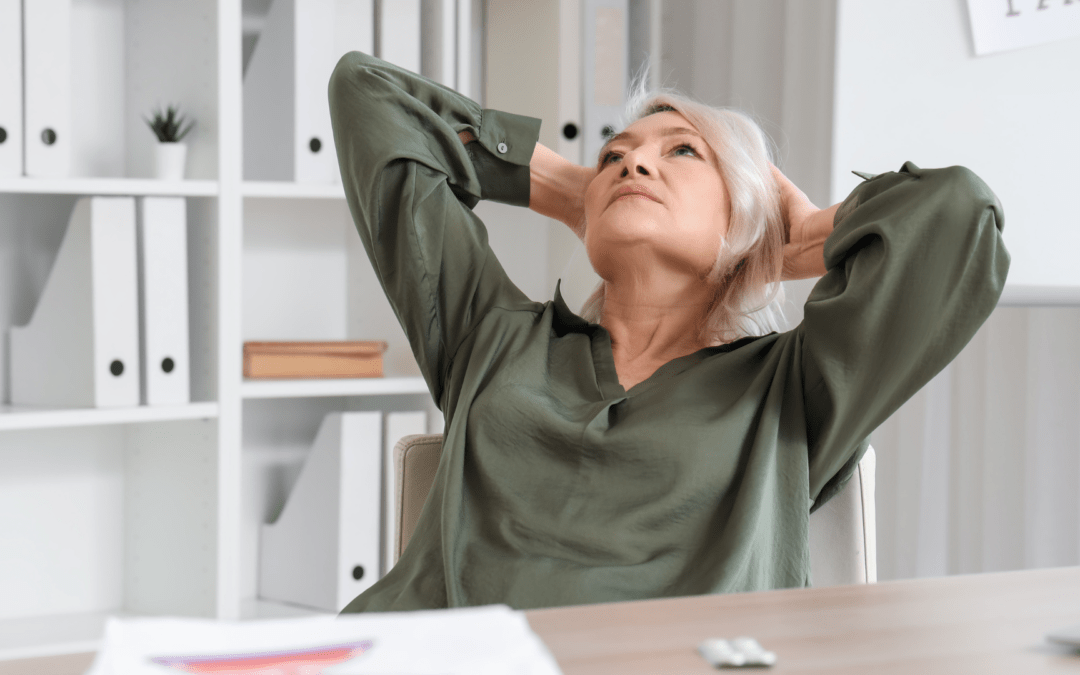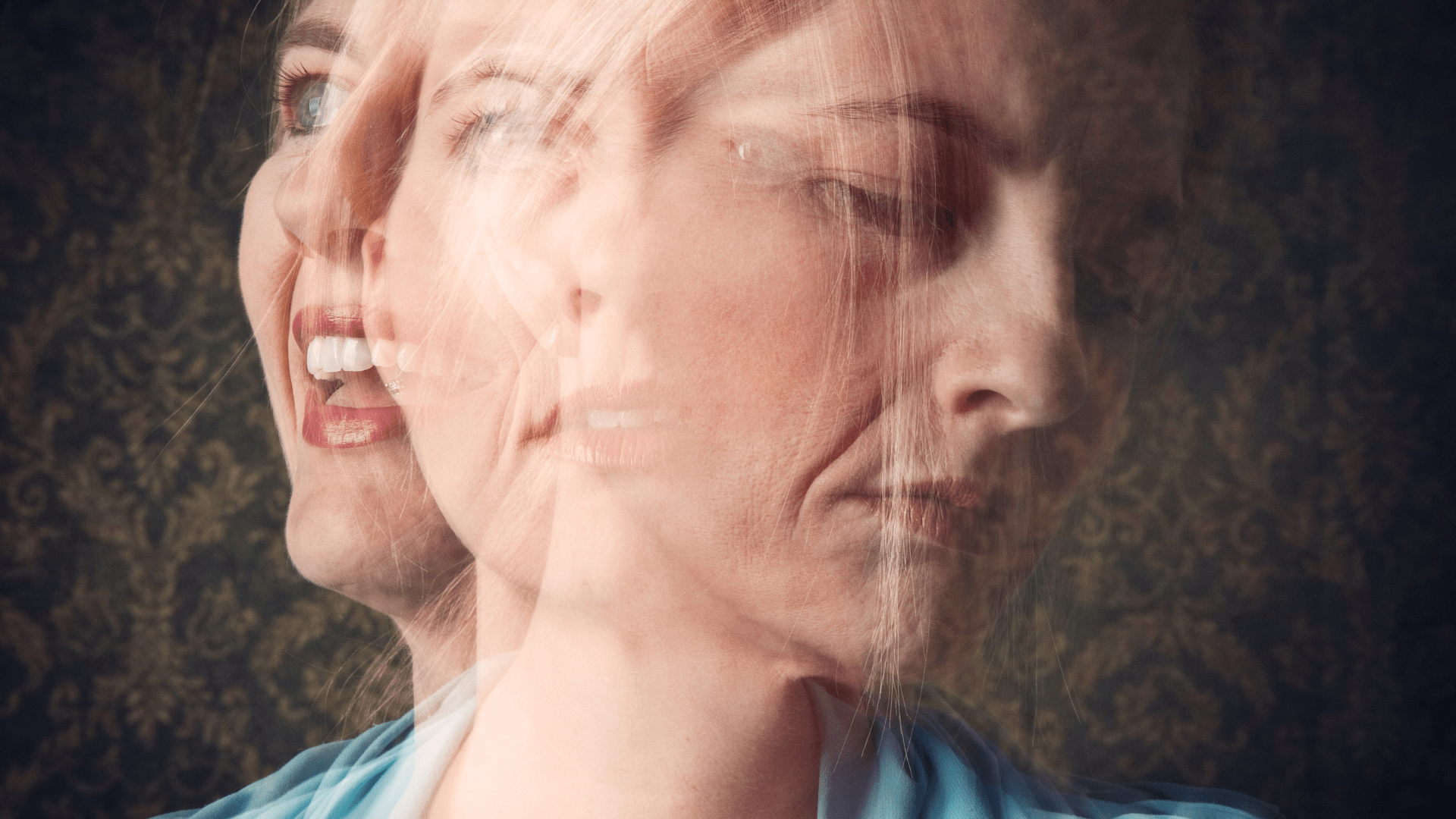Is this menopause? Because your body doesn’t feel like it used to.
Maybe you’re sweating for no reason. You’re snapping at things that never used to bother you. You’re awake at 3 AM and can’t explain why. If you’re asking yourself, “Is this normal?”—you’re not the only one.
These changes often start when two hormones—estrogen and progesterone—begin to drop. When that happens, your body reacts in all kinds of ways.
This blog explains what those hormones do, what happens when they decline, and why it can make you feel the way you do.
Let’s make sense of it.
What Happens When Estrogen and Progesterone Start to Drop?
Estrogen and progesterone control more than just your period. They help with sleep, mood, energy, skin, brain function, and even how your body handles temperature. So when they go down, your whole system feels it.
Here’s what each hormone does:
-
- Estrogen helps keep your brain sharp, your bones strong, and your moods steady. It also affects how your body uses fat and maintains your skin and tissues.
- Progesterone helps with sleep, supports your mood, and balances the effects of estrogen.
- Estrogen helps keep your brain sharp, your bones strong, and your moods steady. It also affects how your body uses fat and maintains your skin and tissues.
During the years leading up to menopause—called perimenopause—your hormone levels don’t just slowly drop. They swing up and down. One week things feel okay, the next week they don’t. Eventually, they both drop low and stay there.
That’s when menopause begins. It’s not instant. It builds over time, and for many women, that’s the confusing part.
Remember that every woman’s experience is different. Factors like genetics, lifestyle, and even cultural background can play a role in how menopause unfolds. Studies show that symptom frequency and severity vary widely across different cultures, with Japanese women, for example, reporting fewer hot flashes and night sweats compared to Western populations, possibly due to dietary and lifestyle differences.
What Do These Hormone Changes Do to Your Body?
When estrogen and progesterone drop, your body reacts. These changes don’t always feel the same for everyone, but some of the most common effects include:
-
- Hot flashes and night sweats – Your internal thermostat gets glitchy.
- Mood swings and irritability – Estrogen affects brain chemicals like serotonin.
- Poor sleep – Low progesterone can mess with your ability to relax and stay asleep.
- Forgetfulness or brain fog – Estrogen plays a role in memory and focus.
- Vaginal dryness or discomfort – Less estrogen means thinner, drier tissues.
- Changes in your period – Cycles get shorter, longer, heavier, or lighter before stopping.
- Hot flashes and night sweats – Your internal thermostat gets glitchy.
These symptoms don’t mean something is “wrong.” They mean your hormones are shifting—and your body is trying to adjust.
When Should You Start Paying Closer Attention?
If your daily life feels off more than it feels okay, it’s time to take a closer look. Some women ride out menopause with minor symptoms. Others feel like they’ve been hit by a truck.
There’s no “right” way to go through this, but you don’t have to figure it out alone.
That’s why some women choose to talk to clinics that focus on hormone health. They can help you understand what’s happening inside your body and explore options like bioidentical hormone therapy (BHRT), if that feels right for you.
What Can You Do Next?
If you think menopause might be starting, there are a few simple things you can try on your own first:
-
- Track your symptoms – Write down when they happen, what they feel like, and what might be triggering them. Patterns help.
- Adjust your sleep routine – Try going to bed at the same time every night, limiting screens before bed, and cutting back on caffeine late in the day.
- Stay active – Regular movement like walking, yoga, or light strength training can help improve mood and sleep.
- Watch your diet – Foods rich in calcium, vitamin D, and phytoestrogens (like soy) may help support your body through hormonal shifts.
- Cut back on alcohol and smoking – Both can make hot flashes and sleep problems worse.
- Track your symptoms – Write down when they happen, what they feel like, and what might be triggering them. Patterns help.
These changes won’t stop menopause, but they may make symptoms easier to manage.
And if things still feel off, you’re not stuck. That’s when it might be time to talk to someone who specializes in hormone health. Some women explore options like bioidentical hormone therapy (BHRT), where the goal is to help you feel steady again—on your own terms.
How We Can Help
Your body’s changing, but you’re not alone. And if you ever want support that actually understands what you’re going through, Amazing Meds is here for you.
We offer:
-
- Comprehensive hormone testing (estrogen, progesterone, thyroid, cortisol, and more)
- Personalized plans—from nutrition to supplements to BHRT, tailored to your needs
- Real experts who help you figure this out—without judgment, pressure, or guesswork
- Comprehensive hormone testing (estrogen, progesterone, thyroid, cortisol, and more)
✨ Because you deserve to feel good in your body again.
👉 Schedule a consultation here to learn what’s really going on—and what to do next.

Celeene Rae
Writer & Blogger @ Amazing Meds




0 Comments